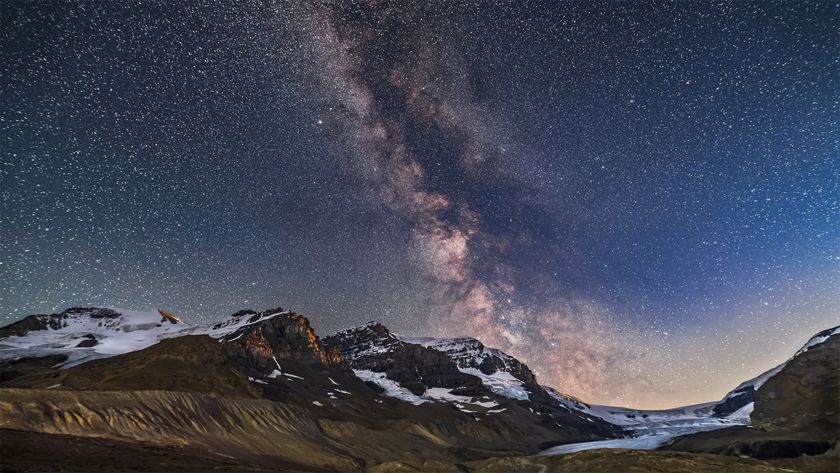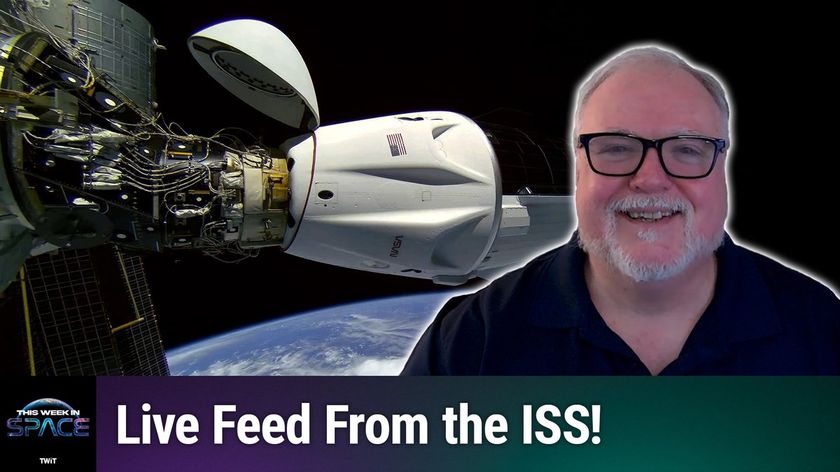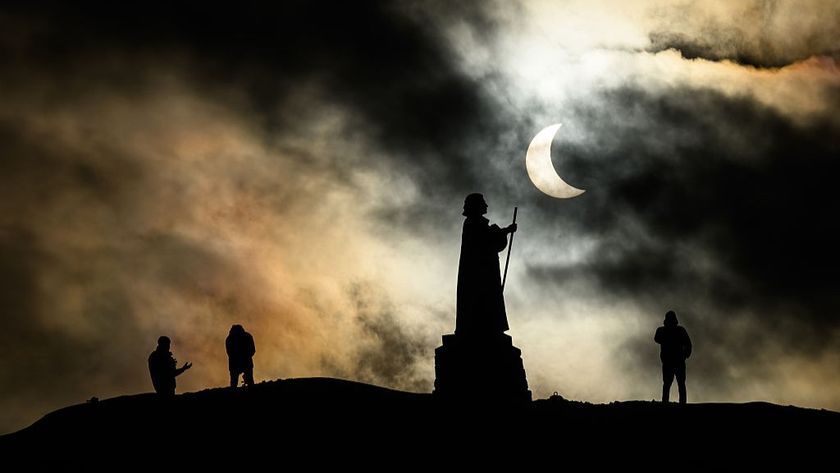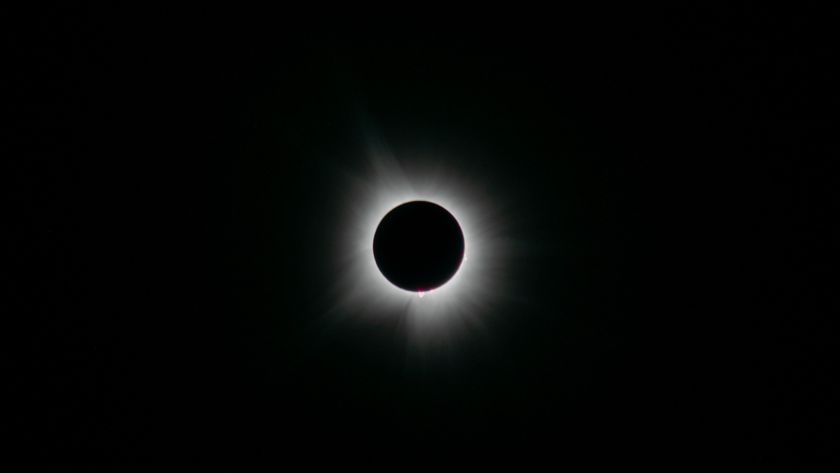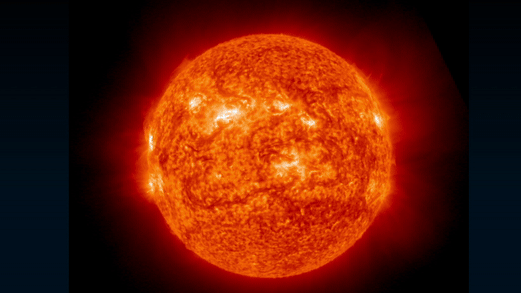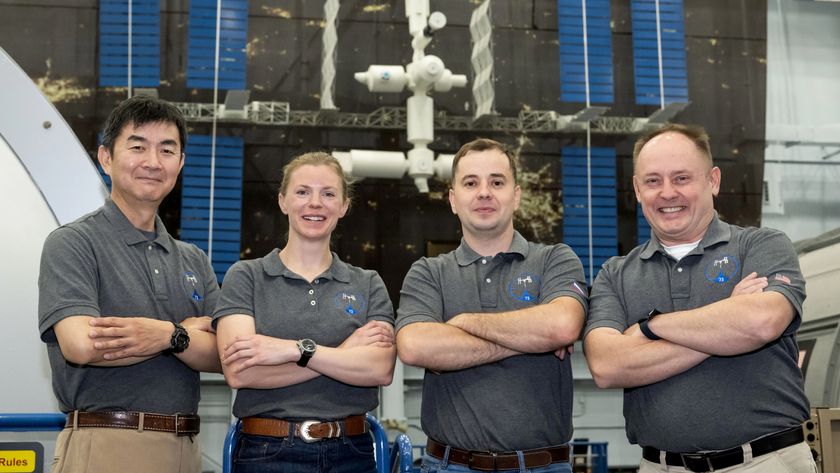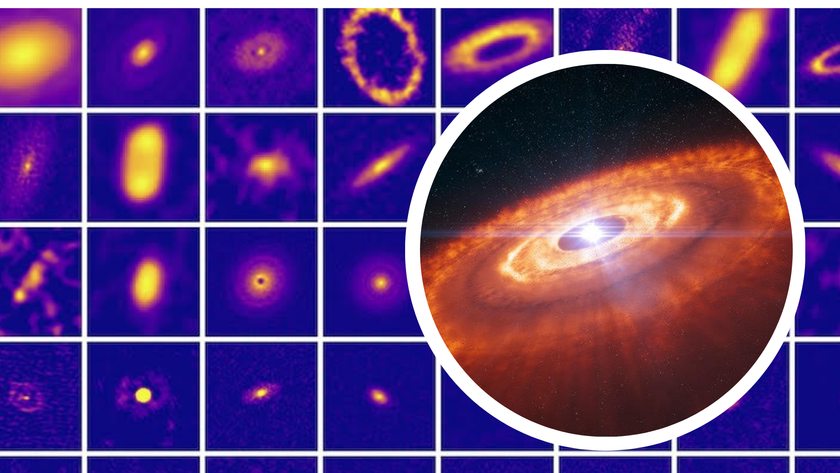Orionid Meteor Shower Peaks Sunday Morning
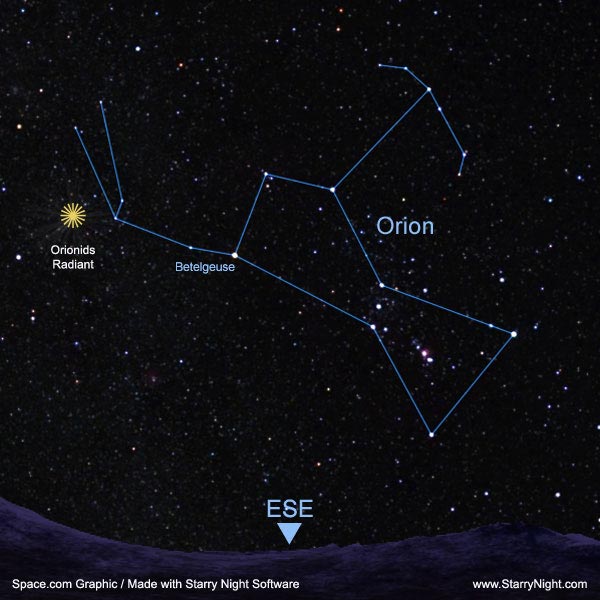
The annual Orionid meteor shower peaks early Sunday morning and could put on a delightful display for skywatchers with clear, dark skies.
The Orionids are created by tiny bits of debris thought to be left in space by Halley's Comet as it orbits the sun. Each year, Earth passes through the debris trail, and the material lights up as it vaporizes in our atmosphere, creating "shooting stars."
In the countryside away from light pollution, the Orionids typically serve up around 20 meteors per hour during the peak. This year could be double that, said Joe Rao, SPACE.com's Skywatching Columnist. The estimate is based on a tentative new prediction from Mikaya Sato and Jun-ichi Watanabe of Japan's National Astronomical Observatory. However, meteor shower predictions are notoriously difficult, experts agree.
Either way, cloudless skies and dark conditions away from streetlights and house lights would make for an enjoyable show anytime between 1:30 a.m. and daybreak Sunday, Rao figures.
"Almost certainly, you should sight at least a few of these offspring of Halley's Comet as they streak across the sky," he said.
Urban skywatchers would see far fewer meteors.
The meteors can appear anywhere in the sky, but will all seem to emanate from a single point, called the radiant. The radiant for the Orionids, in the constellation Orion, will be high in the southern sky in the predawn hours.
Get the Space.com Newsletter
Breaking space news, the latest updates on rocket launches, skywatching events and more!
Meteor watching is best done from a location with a broad view of the sky. A blanket or lounge chair allows the skywatcher to comfortably lie back and look up. Seasoned observers advise wearing much warmer clothing than you think you might need. Telescopes and binoculars are not needed.
The Orionid shower is already under way and ramping up, producing a handful of meteors each hour after midnight. So, the mornings immediately surrounding the peak could be worth a look too, Rao said.
Editor's Note: SPACE.com will provide a complete viewer's guide to the Orionids Friday.
- Sky Calendar and Moon Phases
- 10 Steps to Rewarding Stargazing
- Meteor Watching Tips
Join our Space Forums to keep talking space on the latest missions, night sky and more! And if you have a news tip, correction or comment, let us know at: community@space.com.

Space.com is the premier source of space exploration, innovation and astronomy news, chronicling (and celebrating) humanity's ongoing expansion across the final frontier. Originally founded in 1999, Space.com is, and always has been, the passion of writers and editors who are space fans and also trained journalists. Our current news team consists of Editor-in-Chief Tariq Malik; Editor Hanneke Weitering, Senior Space Writer Mike Wall; Senior Writer Meghan Bartels; Senior Writer Chelsea Gohd, Senior Writer Tereza Pultarova and Staff Writer Alexander Cox, focusing on e-commerce. Senior Producer Steve Spaleta oversees our space videos, with Diana Whitcroft as our Social Media Editor.

